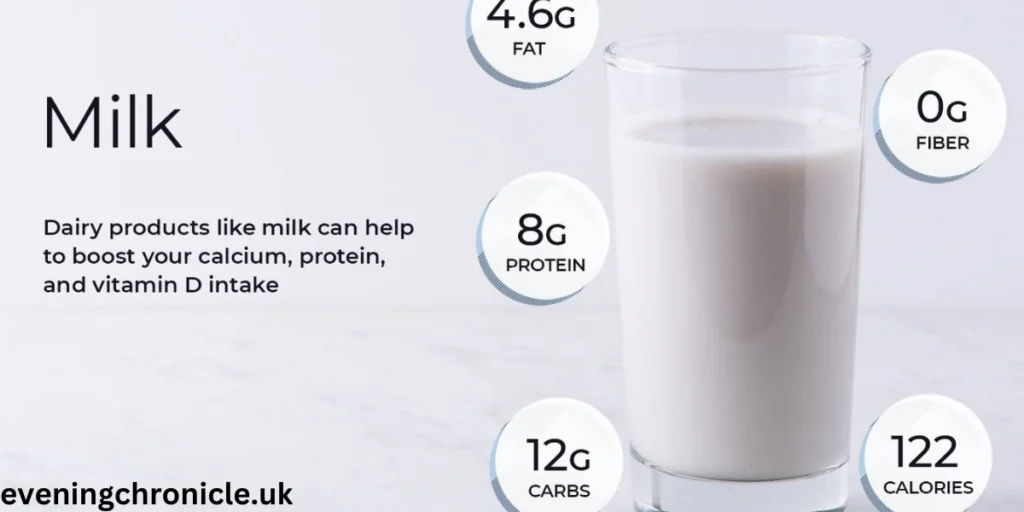When considering the nutritional value of Milk Calories 100ml, one of the primary metrics to assess is the caloric content. Understanding the Milk Calories 100ml can help individuals make informed dietary choices, whether for weight management, nutritional planning, or general health maintenance. This article delves deeply into the caloric content of different types of milk, the factors influencing these values, and their implications for a balanced diet.
Understanding Milk Calories 100ml Content
Milk is a nutrient-rich liquid, providing essential vitamins and minerals necessary for growth and development. The caloric content in 100ml of milk varies based on its type and fat content. Here’s a detailed breakdown:
Whole Milk
Whole milk, often referred to as full-cream milk, retains its natural fat content. In 100ml of whole milk, the calorie count is approximately 61 calories. This includes:
- Fat: 3.3 grams
- Carbohydrates: 4.7 grams (primarily lactose)
- Protein: 3.2 grams
Semi-Skimmed Milk
0Semi-skimmed milk, a popular choice for those balancing taste and reduced fat intake, contains about 47 calories per 100ml. Its composition includes:
- Fat: 1.7 grams
- Carbohydrates: 4.8 grams
- Protein: 3.4 grams
Skimmed Milk
Skimmed milk has the lowest fat content, making it a preferred option for low-calorie diets. It contains around 34 calories per 100ml:
- Fat: 0.1 grams
- Carbohydrates: 5.0 grams
- Protein: 3.4 grams
Also, read: (Exploring Toned Milk Benefits: A Comprehensive Guide 2024)
Factors Influencing Caloric Content in Milk
The caloric content of Milk Calories 100ml is influenced by several factors, including the type of milk, its processing methods, and the presence of additives.
Type of Milk
The primary factor affecting caloric content is the fat percentage. Whole Milk Calories 100ml, semi-skimmed milk, and skimmed milk all vary in their fat content, directly impacting their calorie counts.
Processing Methods
Pasteurization, homogenization, and fortification can alter the nutritional profile of milk slightly, although these changes are more significant in terms of vitamin and mineral content rather than calories.
Additives
Flavored milk varieties, such as chocolate or strawberry milk, contain additional sugars and flavors, significantly increasing the caloric content. For instance, chocolate milk can have up to 85 calories per 100ml.
Nutritional Benefits Beyond Calories
While Milk Calories 100ml are a critical aspect of milk’s nutritional value, it is essential to consider other benefits milk offers. Milk is a rich source of:
- Calcium: Vital for bone health and strength.
- Vitamin D: Enhances calcium absorption and bone growth.
- Protein: Essential for muscle repair and growth.
- B Vitamins: Including B12, crucial for red blood cell formation and energy production.
Comparative Analysis with Plant-Based Milks
In recent years, plant-based milks such as almond, soy, and oat milk have gained popularity. Here’s a caloric comparison with cow’s milk:
Almond Milk
- Calories: 13 per 100ml (unsweetened)
- Fat: 1.1 grams
- Carbohydrates: 0.3 grams
- Protein: 0.4 grams
Soy Milk
- Calories: 33 per 100ml (unsweetened)
- Fat: 1.8 grams
- Carbohydrates: 1.6 grams
- Protein: 3.0 grams
Oat Milk
- Calories: 46 per 100ml
- Fat: 1.5 grams
- Carbohydrates: 7.0 grams
- Protein: 1.0 grams
Incorporating Milk into a Balanced Diet
Integrating milk into your diet requires understanding its nutritional benefits and caloric content. Here are some tips:
For the Management of Weight
- Opt for skimmed milk to reduce calorie intake while still benefiting from protein and calcium.
- Use semi-skimmed milk for a balanced approach if full-cream milk is too rich.
To Build Muscle
- Whole milk can be advantageous due to its higher protein and fat content, which supports muscle recovery and growth.
With Intolerance to Lactose
- Lactose-free milk retains similar caloric values to regular milk but eliminates the discomfort associated with lactose intolerance.
FAQs Milk Calories 100ml
How many calories are in Milk Calories 100ml?
It contains around 3.3 grams of fat, 4.7 grams of carbohydrates, and 3.2 grams of protein. This rich and creamy option is popular among those who do not need to limit their fat intake.
What is the calorie difference between semi-skimmed and skimmed Milk Calories 100ml?
Semi-skimmed milk has about 47 calories per 100ml, whereas skimmed milk contains around 34 calories per 100ml. Semi-skimmed milk has a moderate fat content, approximately 1.7 grams per 100ml, compared to skimmed milk, which has only about 0.1 grams of fat per 100ml.
How do the Milk Calories 100ml in plant-based milks compare to cow’s milk?
Plant-based alternatives usually have fewer calories. For instance, unsweetened almond milk has about 13 calories per 100ml, unsweetened soy milk contains 33 calories per 100ml, and oat milk has 46 calories per 100ml. These values may change based on sweetening or added nutrients.
Is there a significant nutritional difference between different types of milk beyond calories?
Yes, beyond calories, different types of milk offer various nutritional benefits. Whole milk provides higher fat content, which can be beneficial for muscle building and energy. Skimmed milk offers lower fat and calories while still providing essential nutrients like calcium and protein. Plant-based milks vary in their nutrient profiles; for example, soy milk is high in protein, while almond milk is low in calories. Each type of milk has its unique benefits, making it suitable for different dietary needs and preferences.
Conclusion
Understanding the caloric content in 100ml of milk is fundamental for making informed dietary choices. Whether you prefer whole, semi-skimmed, or skimmed milk, each type offers unique benefits tailored to different nutritional needs and health goals. By balancing milk’s caloric intake with its nutritional advantages, you can ensure a wholesome and beneficial addition to your diet.


